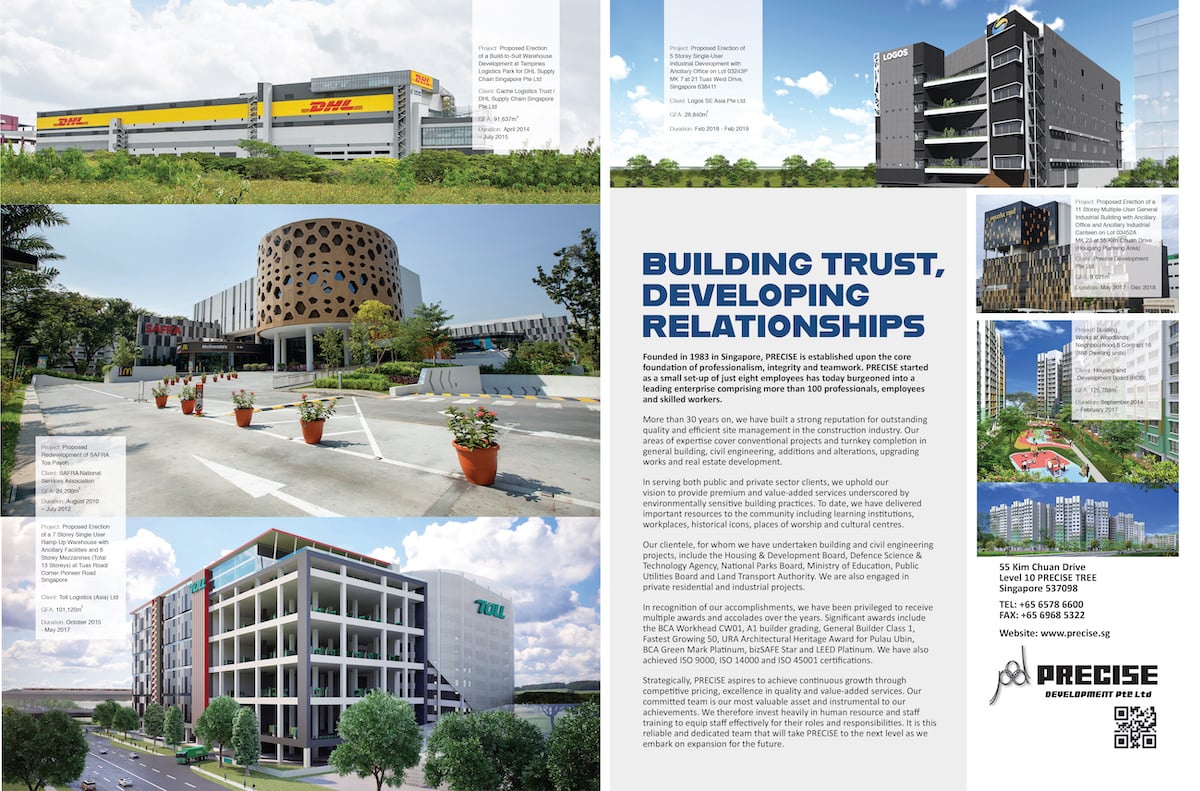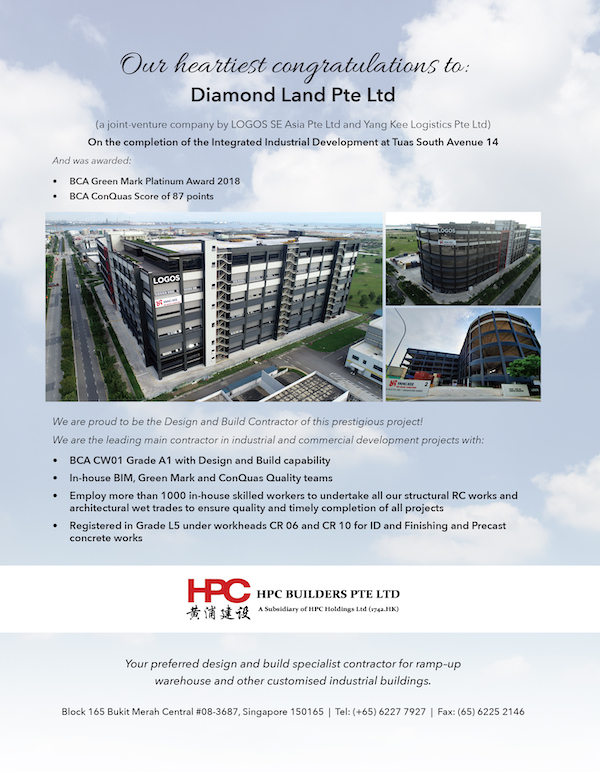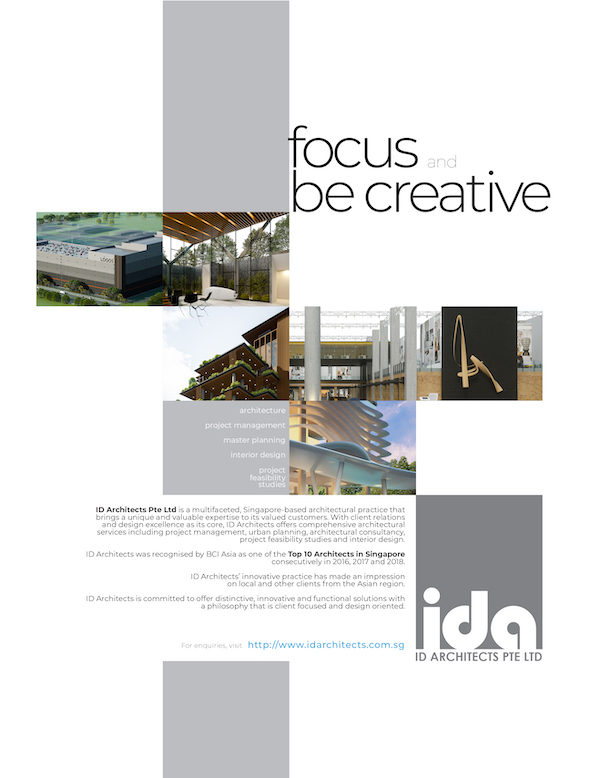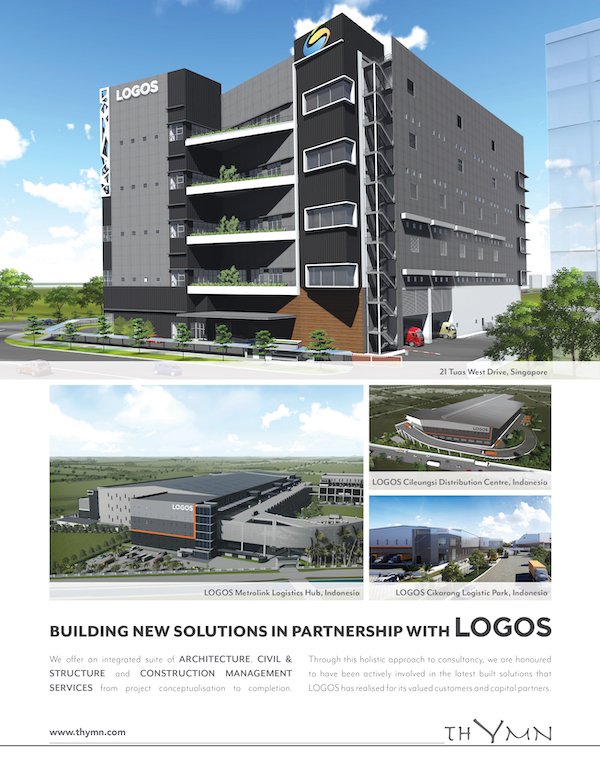They say you can take the boy out of the country but you can’t take the country out of the boy. It’s a fair call with Stephen Hawkins. This country boy, his accent still peppered with the broad twang of rural Australia despite nearly two decades in Asia, may be Managing Director of LOGOS’ South-East Asian business, but there’s no mistaking a raw earthiness that only comes from country stock. Good country stock.
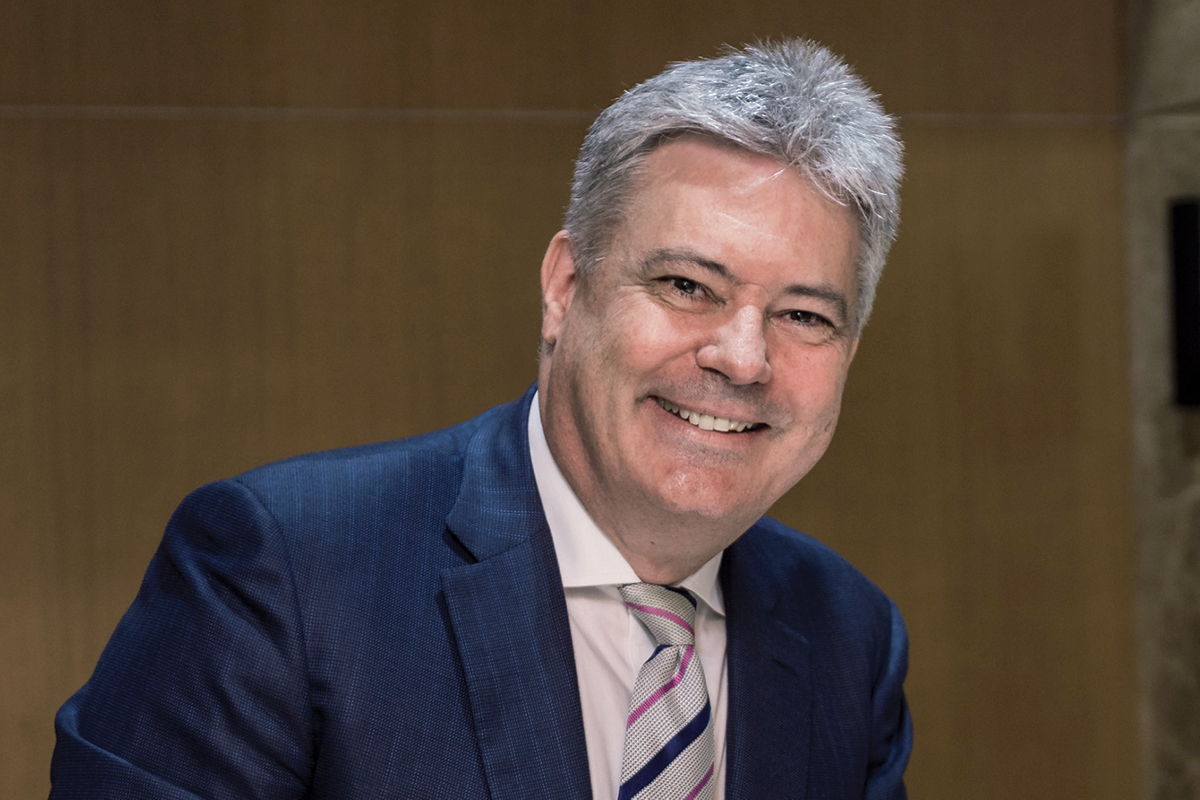
Stephen grew up in Tamworth, a town in north-eastern New South Wales, famed for its Big Golden Guitar and annual Country Music Festival. That’s when Tamworth, sweltering in the January heat, comes alive, swelling to double its size with more than 50,000 visitors as the cream of country music comes to town.
“I didn’t grow up on a farm but I was certainly a country boy,” Stephen says. “It was quiet living in town but it gave me a good grounding. As soon as I finished school, I went to university and worked in Sydney, so I guess I’m more of a Sydney boy. Although I always found the city a bit daunting.”
Enter Singapore. A global financial centre boasting a multicultural hub infused with a colonial core, where billion-dollar deals are secured over dinner. Sydney, let alone Tamworth, didn’t compare.
Sent there in 2001 to create a Real Estate Investment Trust (REIT) for Ascendas, Stephen was thrust abruptly into the fast lane of Asian life, a brutal assault on his senses.
“I was in my early thirties and wasn’t really an adventurous kind of guy, so it was a shock at first,” he admits. “Suddenly I’m working in another country, thinking, ‘Wow, I’m scared!’ Everything was so new and so different; I didn’t know what I was doing. But growing up in a small town set me up for life – it meant I didn’t rely on a big city and its entertainment to feel part of it. I just got on with the job.”
Toss Hong Kong, Kuala Lumpur, Shanghai and Tokyo into the mix, as Stephen “stumbled” from one role to another, he was hooked. Asia was in his blood.
“When I came to Singapore, I had no idea I was going to stay in Asia for a long time,” he reflects.
“But, after the first year, when you spend your second Easter, or your second ANZAC Day or birthday overseas, it becomes a lot more comfortable; you make stronger, deeper friendships. Time just drifts along and if you’re having a good time and you’ve got a good career and a life balance, you tend to stay until the music stops.”
Stephen has now spent his past 11 birthdays in Singapore, with the last three as Managing Director of LOGOS’ South-East Asian business, a vertically integrated logistics specialist that builds modern industrial and logistics properties across Asia–Pacific.
“We design, build, then bed a tenant in,” he explains. “We try to do all of those things ourselves, outsourcing the construction work. We have specialists in all our departments, from finding the land and negotiating, to discovering exactly what tenants want and working with our investors.
“It’s a bit clichéd to say we provide real estate solutions to the tenant, but that’s what we actually do. We ask our tenants to tell us exactly what they need and we package up a deal to produce the building they want.”
“We ask our tenants to tell us exactly what they need and we package up a deal to produce the building they want.”
Stephen explains that when it comes to acquiring land in Singapore, the onus is largely on LOGOS to prove to the government that any proposed construction will be productive.
“In places like Singapore, where land is precious and the government is quite strict on who can access it, we need to demonstrate a lot of upside,” he says. “That means finding the tenant first to prove to the government the land will be put to good use.
“It’s not necessarily too tough for us; it just means we do all our work upfront. We’re well accepted and it’s a good, clean, open economy and open real estate market. No barriers.
“Because we’re quite single-mindedly focused on warehouses, people and logistics, we know the basics,” he continues. “We know what people want: big driveways, high clearance, clean space, all of that. That’s why we have internal architects, so that we know the nuances.

“We keep it simple. We know how to build buildings and we focus on doing the right thing for our tenants and investors. So, as long as we keep our eye on both of those issues, we can continue to roll out our business.”
LOGOS was founded in Sydney in 2010 and moved into South-East Asia in 2016. Stephen had been working in Kuala Lumpur as Head of Real Estate for Guidance Investments, before moving back to Singapore in 2012 as Development Director at Boustead.
On the side, he was focused on growing other fund management businesses, including Magenta Asset Management, Vasco Investment Managers and D H Flinders.
“I was out in the wilderness, working on my own, trying to expand. It was difficult and lonely, particularly when the phone didn’t ring,” he admits.
“I was out in the wilderness, working on my own trying to expand. It was difficult and lonely, particularly when the phone didn’t ring.”
“Although I was getting the basics, had a few deals and plenty of ambition to do things in the region, there wasn’t the magic. There was no team around me with everything under the one roof.
“I was talking with some investors who were establishing a fund that focused on South-East Asia and that’s how we fell into creating LOGOS’ South-East Asian business.”
Stephen, in his late forties, along with the other investor founders, had been in the industry for a long time. This combined experience, with support from the Australian team, provided the perfect launchpad to develop industrial property. “Suddenly, I’m part of something bigger,” he says.
“We are all like-minded – very much tenant- and investor-focused, building on each other’s strengths and successes. For me, it was like going back to the comfortable embrace of a long-lost partner or friend; it gave me the control and stability to move forward. It’s a cliché, but the whole is definitely greater than the sum of its parts.”
Stephen says that while Singapore’s stability and transparency created the perfect environment for the company to operate and attract investors, both legal and financial, the early days were challenging.
Despite his new-found support, much of the groundwork was left to him to get operations up and running. “Our biggest and perhaps scariest challenge was building a team from scratch,” he reflects.
“It’s quite worrying when you have to do absolutely everything yourself, from the most menial tasks such as picking up a cheque at the bank to negotiating with a tenant or negotiating legal problems, that sort of thing.
“It takes time to add to the team, one by one. Then, once you build a bit of momentum and get comfortable, you have to ensure you’re not doing too much and overstretching resources.”
The South-East Asian team consists of about 50 members of staff, with 30 in Singapore and 20 in Jakarta. While Indonesia is an exciting market for the company, it’s one requiring a few lessons in local practices.
“There are always a lot of surprises in another country when you’re trying to break new ground and do things that are not necessarily on a well-trodden path,” Stephen explains.

“We’ve had to learn a lot. For example, the legal system there is more Dutch-based, whereas the Singapore system is English-based, meaning there are different terms and different ways of doing things. We also don’t have any previous experiences to draw upon because the market is so much less established. Even from a planning perspective, while there are some very good ambitions, there’s not a lot of depth to establish the right environment and build the economy.
“Probably half of our Singapore team has worked outside of Singapore, gaining experience in different countries. Some of them go to Indonesia to share ideas about the way to work so we can build our business and maintain the same high standards in safety and quality. But we’ve still got to make sure we’re doing it the local way. So, we’ve deepened our resources and built a high-quality and hard-working local team. It’s going very, very well.”
Stephen says one advantage the Indonesian region has over Singapore is the availability of land. He compares the potential to snare larger space with similar more expansive options in Australia and China.
“It certainly gives us many different opportunities to grow the business,” he says. “Being a new market, it’s probably what takes up most of my time at the moment – planning ahead and carefully adding to our team. We’ve spent a lot of time there and we’ll finish our first building this year.”
A self-confessed workaholic, it took Stephen years to realise one of the biggest lessons he could learn in life was to work a little less. Or at least try to.
With a second family established in Singapore, comprising three children under 10, the executive is refreshingly honest when he admits his second approach to parenting is vastly different from his first.
“My older children are at university in Australia, and I’ve got three here in Singapore at primary school,” he says. “They all mean the world to me. But while I always loved my older kids, I probably worked too much and didn’t give them enough attention. Now that I’m a lot older, and have been blessed with having some younger kids, I’m more available for them. I’ve made all my mistakes before, so I can actually try and spend more time with the kids this time round.
“This sounds really boring but what makes me feel good for the day is getting the kids ready and putting them on the school bus. Sure, sometimes they’re grumpy because you’ve woken them up and made them get dressed and clean their teeth. But when I walk them out the front and put them on the school bus and wave goodbye, I feel good. It sets their day up and it sets my day up.
“I know there must be so many people out there who also do it every day, but it’s what I love; when I’m travelling, it’s the thing I miss the most. I wish I could actually transport myself back to Singapore for 20 minutes in the morning, just to put the kids on the bus.”
There’s no doubt Stephen’s young family has encouraged a new work-life balance, but it was another comment from a lawyer visiting from Sydney that triggered an even greater light-bulb moment.
It was the last night of the business trip when the lawyer, obviously recognising in Stephen something all too familiar in senior executives, made an observation.
“He looked at me and said, ‘No-one’s ever lying on their deathbed saying to themselves that they wished they’d put in more time at work.”’ I thought, ‘That is exactly me and that’s so bad.’ So, I tried to change my ways.
“He looked at me and said, ‘No-one’s ever lying on their deathbed saying to themselves that they wished they’d put in more time at work.’”
“Another thing I learned late in life was a lesson from a good friend in HR who told me to just enjoy the journey. Rather than being just goal-driven and wanting to get to the finish line because that’s always joyful, you must enjoy the journey, whether it be general life or building a business. It’s honestly one thing I wish I’d known 20–30 years ago, or at least wish I’d believed and listened to a bit more.
“I want to be nice and calm and a good influence on my work colleagues and family. Try to be for them everything that I wasn’t for myself and, yes, while I’m still working very hard, and at times it’s stressful, I’m actually enjoying this journey I’m on now.”
Ironically, despite living thousands of kilometres away in Singapore, Stephen’s ‘journey’ often takes him back to Tamworth and the memory of his father working as an accountant for the NSW Department of Health. “He’s my greatest inspiration,” Stephen says.
“He wasn’t necessarily entrepreneurial; he stayed in the same job. It was a safe, secure role requiring no more ambition than to work hard and do a good job, he was from Sydney, but he stayed in Tamworth while my brother and I were at school to give us a stable life. Then, bang! As soon as we went to university in Sydney, he moved back there.
“He came from a poor background and was very, very focused on being there for his kids and living an honest life. Of course, I had no appreciation of that when I was a kid but then, as I started to live my adult life, I began to look and think, ‘What would he do and how should I actually do it?’”
Another thing Stephen can attribute to his father is his name, a source of much confusion, and often hilarity, in the past. “Yes, there is this other fellow, a genius, whose name ends with a ‘g’ not an ‘s’. Clearly, I’m not him,” Stephen laughs.
“Yes, there is this other fellow, a genius, whose name ends with a ‘g’ not an ‘s’. Clearly, I’m not him.”
“I’m not exaggerating, though, when I say that half the time when I hand out my business card, somebody would say they either thought they knew me, or would make a joke about it. I used to get it all the time.
“And when Stephen Hawking died in March 2018, my 10-year-old daughter sent me a message saying her classmates were telling her I was dead. The poor kid – she knew I wasn’t, but it’s easy to see how it happened.
“When he died, I read a few stories about his life and, yeah, his work will live on. I wish I could leave a lasting legacy in the world like he has, but I guess I’ll just quietly go away,” he laughs.
Granted, Stephen may not have the genius of his ‘near’ namesake, but he’s certainly underestimating his ability to leave a legacy. While he acknowledges the past three years have been “very, very busy” building the business, he admits his perspective has altered to focus more on developing and maintaining talent.
His priority now is to ensure that his team is well supported, that ambitions are encouraged and resources are provided to build a framework for their future. “We have young people who are very entrepreneurial and want to grow,” he says.
“It makes me feel a bit old sometimes, but now I want to make sure they are aware of the corporate structure that we have put in place that will help them build their own career, to build the brand, the strength of LOGOS, themselves.
“We want our employees to realise the grass isn’t always greener and enjoy what they’ve got with us and to take advantage of it. If you make things available, people will gravitate towards improving themselves and furthering their career, rather than thinking about going elsewhere.
“I will give them resources so they can find the right transactions, put together the right deals and discover what the tenants and investors want. They feel good because they know they can succeed and, before they know it, they’ve built their own life. Obviously, I can’t force them to take the challenges to improve their careers, and I understand not everybody wants to be a boss. And that’s ok, because you also need good, steady people who just love doing what they’re doing.”
One of Stephen’s greatest surprises in the job was learning how well employees responded to working in a more open and encouraging environment than the more structured ones in which he was trained.
He admits he initially struggled with delegating, preferring to do jobs himself or, at the very least, micromanaging. Determined to implement a more productive work culture at LOGOS, he’s started teaching his own senior management team how to successfully administer roles and responsibilities to more junior staff.
“As my role expanded, it quickly got to the stage where there was too much for me to be doing myself,” he explains.
“I had to mould my ways, learn to supervise and keep in contact with team members, providing support rather than control. I have enough experience now to get over the fact that, yes, perhaps I could have done it better. I know I can’t, though, when I’ve got people in my team who have better skills than me.
“If they fall over, trip up or whatever, you’re there to pick them up. Provide the safety net, then leave them to get on and do it. It’s so heart-warming when you see someone doing well. You can actually see them glowing inside.”
In May this year, LOGOS announced that it was planning to double the size of its US$400 million Indonesian platform with transactions closed on four additional sites.
The platform was launched more than two years ago with support from two Canadian institutions, the Canada Pension Plan Investment Board (CPPIB) and Ivanhoé Cambridge, a real estate subsidiary of the Caisse de dépôt et placement du Québec.
A strong demand for state-of-the-art logistics facilities has triggered LOGOS’ plan to work with their investors and commit more capital to funding modern logistics facilities from both ecommerce operators and manufacturers of fast-moving consumer goods over the next three years.
The first phase of the company’s initial project at Pondok Ungu in Bekasi, Jakarta, is expected to be finished by the end of this year with the site transformed into a US$130 million development project.
Meanwhile, in Singapore, another key partnership has provided LOGOS with a unique opportunity to not only invest in the Singaporian clean energy subsector but to add value through future development expansions as well.
In January, LOGOS Singapore Logsitics Venture (LSLV), along with Ivanhoé Cambridge and CPPIB, and new investors Bouwinvest Real Estate Investors and LaSalle Global Partner Solutions entered into a long-term sale-and-leaseback agreement with the Singaporian arm of global solar firm REC.
The investment, one of the largest industrial deals completed in Singapore over the past 12 months, secures the US$430 million, 25-hectare site in Singapore’s Tuas South – an established and ongoing developing submarket.
The property, built in 2010, includes a 151,810 square-metre integrated industrial and warehouse facility leased to REC for the conversion of polysilicon into wafers, solar cells and solar panels.
It is located next to the future Tuas Mega Port, which, when completed in 2040, will house all of Singapore’s future container activities, handling up to 65 million standard-sized containers, an increase of 40 million.
Proudly supported by:
